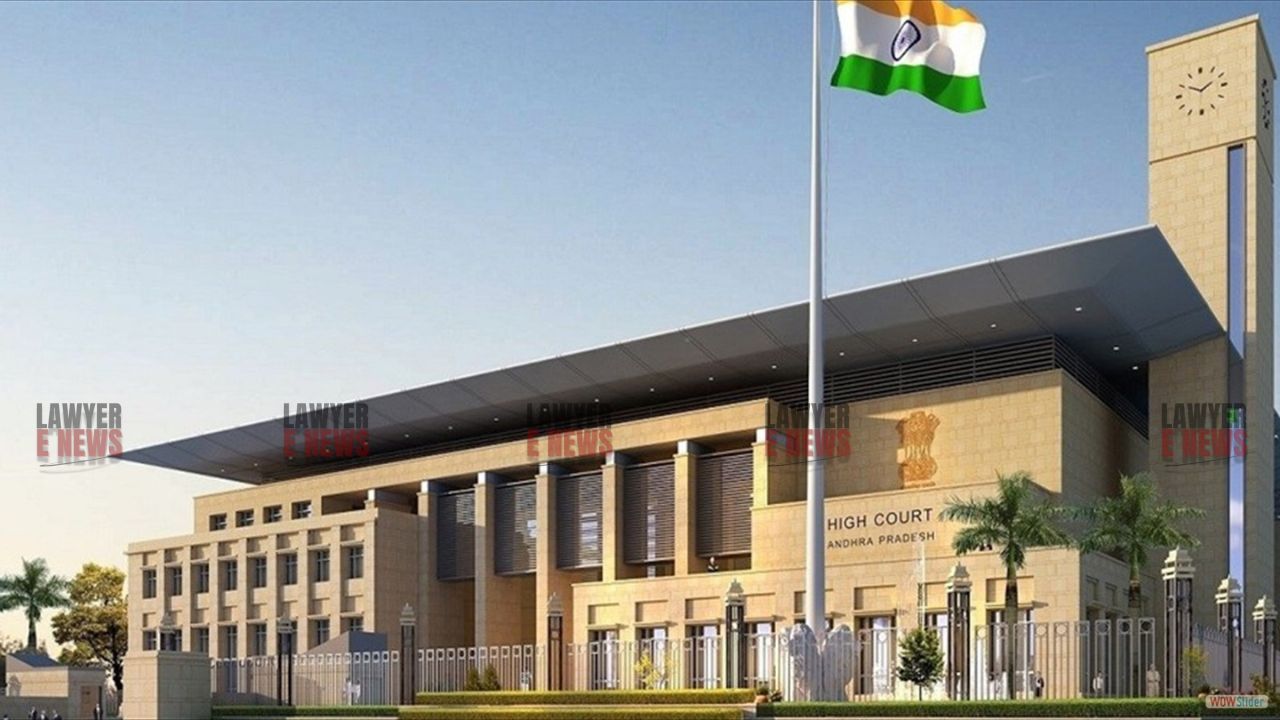-
by sayum
18 February 2026 10:41 AM



Section 216 confers exclusive power on the Court — Prosecutors cannot dictate how charges are framed or altered – In a crucial reaffirmation of procedural autonomy within the criminal justice system, the Andhra Pradesh High Court on 4th April 2025, in Sriram Chandra Sekhar @ Chintu vs. The State of Andhra Pradesh (Criminal Petition No. 3424 of 2025), set aside an order passed by a Special Judge for Offences Against Women, which had altered and added multiple murder and conspiracy charges against the petitioner at the behest of the prosecution.
Justice Harinath N. held in unequivocal terms that Section 216 of the CrPC vests the exclusive power to alter or add charges with the Court, and that neither the prosecution nor the defence has any vested right to seek such alteration through petitions. The Court described the Sessions Judge’s acceptance of the prosecution’s petition “in toto” as “procedurally unknown to criminal jurisprudence.”
The petitioner, Sriram Chandra Sekhar, was facing trial in Sessions Case No. 110 of 2016, involving the alleged conspiracy and murder of Katari Anuradha and Katari Mohan, in which he was arrayed as Accused No. 1 (A1). The prosecution, after examining 56 witnesses and during the testimony of the Investigating Officer as PW-57, moved a petition under Section 216 CrPC, seeking reframing of charges.
The trial court allowed the petition, and reframed charges under various IPC sections, including Section 120-B, Section 302 (murder), Section 307 (attempt to murder), and Sections 302/149 and 307/149 (common object).
Challenging this, the petitioner argued that the prosecution had no authority to initiate or seek alteration of charges, and that doing so delayed the trial, which had already consumed years of litigation.
The High Court examined the scope of Section 216 CrPC, which permits courts to “alter or add to any charge at any time before judgment is pronounced,” and firmly ruled:
“Section 216 of Cr.P.C. confers an exclusive right on the Court to alter the charge. This does not give scope either to the prosecution or to the accused to seek such alteration by filing an application.”
Justice Harinath N. emphasized that allowing either party to petition the court under this section would defeat the very purpose of the law, stating: “If the parties misuse it, it would delay the conclusion of the trial, and the same would be beyond the scope of the Court to conclude any trial in any case.”
The Court was particularly critical of the trial judge’s conduct in accepting the prosecution’s petition verbatim:
“It is surprising to note that the learned Sessions Judge had altered the charges as suggested by the prosecution in their petition filed under Section 216 Cr.P.C., in toto. Such a procedure is unknown to criminal jurisprudence.”
The Court also cited landmark precedents including:
P. Kartilakshmi v. Sri Ganesh (2017) 3 SCC 347, where the Supreme Court held that “no party, neither the de facto complainant nor the accused nor the prosecution, has any vested right to seek any addition or alteration of charge.”
Dr. Nallapareddy Sridhar Reddy v. State of Andhra Pradesh (2020) 12 SCC 467, which clarified that while courts may exercise power to alter charges even after evidence is closed, the trigger must originate from judicial analysis, not a party’s request.
The High Court allowed the petition and set aside the impugned order, observing: “The Sessions Court failed to exercise its independent judicial mind and merely acted upon the investigating officer’s suggestions. The Court has abdicated its statutory role, and the order cannot be sustained.”
It further declared: “There is no scope for filing a petition under Section 216 Cr.P.C., by any party. The invocation must arise solely from the judicial conscience of the trial court, upon examination of material evidence.”
This decision lays down a firm procedural boundary, making it clear that Section 216 CrPC is not a tool for tactical intervention by prosecution or defence, but a judicial mechanism to ensure fair and accurate framing of charges. The Andhra Pradesh High Court has sent a resounding message: the sanctity of framing charges lies solely with the trial court, and it cannot be outsourced to investigative agencies or lawyers.
As Justice Harinath N. succinctly stated: “Criminal trials are governed by law and not by convenience or suggestion. The power to frame or alter charges is not shared. It belongs to the court alone.”
Date of Decision: 04/04/2025
